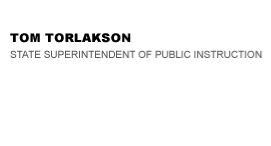Reminder of Legal Obligations to English Learners


Official Letter
Official Letter
Dear County and District Superintendents and Charter School Administrators:
Reminder of Legal Obligations to English Learners and Update on Data Reporting of Services on the California Longitudinal Pupil Achievement Data System
The California Department of Education (CDE) is committed to the goal that all English learner (EL) students receive appropriate instruction and services. As part of the settlement of a lawsuit involving ELs, D.J., et al. v. State of California, et al., the CDE is sending additional reminders to local educational agencies (LEAs) of their legal obligations to provide instructional services to all ELs and report services accurately on the California Longitudinal Pupil Achievement Data System (CALPADS).
LEAs enrolling EL students have a dual obligation to provide a program for ELs designed to overcome language barriers and provide access to the core curriculum. (Castañeda v. Pickard 648 F.2d 989, [5th Cir. 1981]). The CDE recognizes that both services must be an integral part of a comprehensive program for every EL. Pursuant to the terms of the settlement agreement, the CDE is informing you that LEAs, not already providing services, are required to provide English Learner instructional services, and other services determined necessary by the LEA immediately.
Castañeda v. Pickard established a three part test that can be used by LEAs to evaluate and determine whether their programs are appropriately addressing the needs of ELs. Programs for ELs must be (1) based on a sound educational theory, (2) implemented effectively with sufficient resources and personnel, and (3) evaluated to determine whether they are effective in having students overcome language barriers. LEAs should use these criteria to evaluate whether their programs are appropriately addressing the needs of their EL students.
Also, in order to assist you, on January 7, 2015, the U.S. Department of Justice and the U.S. Department of Education (ED) provided guidance to school districts, and all public schools to meet their legal obligation to ensure that ELs can participate meaningfully and equally in all educational programs and services. The guidance is available on the ED web page at http://www2.ed.gov/about/offices/list/oela/english-learner-toolkit/index.html and accompanied by a 10-chapter English Learner Tool Kit.
As part of their program evaluation, LEAs must take steps to ensure that EL instructional services (English Language Development [ELD], Specially Designed Academic Instruction in English [SDAIE], and/or Primary Language) are being provided in core courses and should not assume that appropriate services are being provided based simply on teachers’ credentials or authorizations. LEAs are required to report the EL services provided in courses to the CALPADS for every core course in which an EL is enrolled. Beginning in 2015–16, LEAs will receive a fatal error and will not be able to certify their Fall 2 submission to CALPADS if, for any EL student, they fail to report the type of EL instructional service being provided in at least one course or that no service is being provided. LEAs are reminded that counseling and tutoring do not qualify as EL instructional services, and an EL eligible for special education services must receive EL instructional services in accordance with the student’s Individualized Education Plan (IEP). Submitting English Learner Instructional Services Data to CALPADS document (Attachment A) provides more specific information on how to submit EL instructional services data to CALPADS.
Additionally, the CDE strives to provide LEAs with the most up-to-date information on standards, frameworks, curriculum materials, professional development opportunities, Webinars and online resources available to assist LEAs in the delivery of appropriate educational services to ELs. On September 18, 2015, the CDE sent LEAs guidance on how to fulfill the dual obligation by implementing integrated and designated ELD instruction as part of a comprehensive delivery plan for ELs.
If you have any questions regarding programs and services for ELs, please contact the Language Policy and Leadership Office, by phone at 916-319-0845.
Sincerely,
/s/
Veronica Aguila, Director
English Learner Support Division
California Department of Education
/s/
Jerry Winkler, Director
Educational Data Management Division
California Department of Education
VA/JW:bs
Attachment
